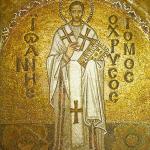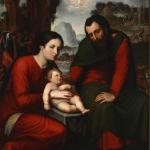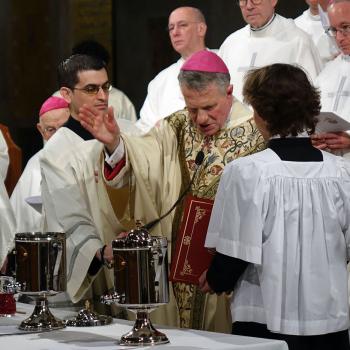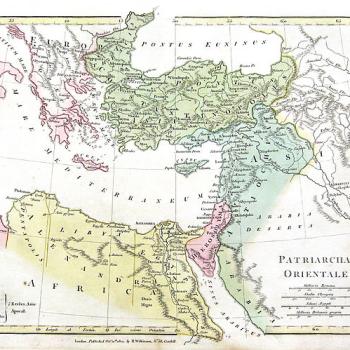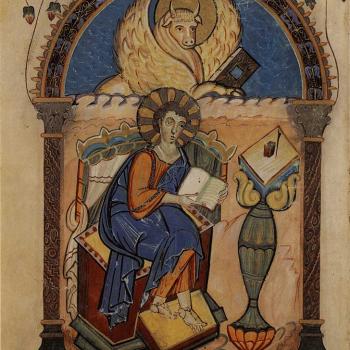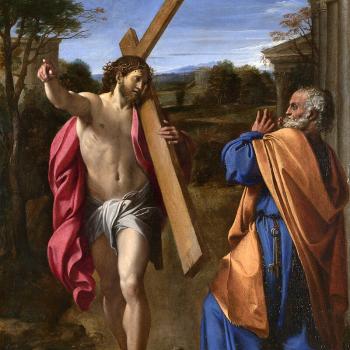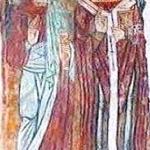![]()
When discussing the question of whether or not St. Peter ever came to the Eternal City, modern scholars tend to affirm that he did indeed arrive there, and that it was ultimately the location of his martyrdom. This of course is in line with ancient Christian tradition, and it has been the constant belief of the Catholic Church that St. Peter was martyred there. Thus, the Popes are on record from the mid second century on claiming a unique authority for themselves derived by virtue of the fact that they are the successors of the Prince of the Apostles.
A typical historiography on the subject of St. Peter’s Roman sojourn begins with the first doubt not occurring on the record until the time of the Waldenses (late 12th c.), it being a given throughout the entire period prior that St. Peter went to Rome where he was ultimately martyred. The individual that is singled out as the first to express such a doubt on record was Marsilius of Padua, in his Defensor pacis (13th c.).[1]
As Dr. Daniel O’Connor observed: “Aside from the doubts expressed by Martin Luther and a few others, there was little interest in the question from the middle of the sixteenth to the early nineteenth century” (p. 3). Moreover, it seems from an historiographical perspective, no scholar or particular school of thought has ever succeeded in swaying the pendulum towards the opposite conclusion. What follows is a non-exhaustive sampling of the views of contemporary scholars (20th c. and beyond), most of whom are non-Catholic (with the exception of Raymond Brown). It is meant to serve as a resource. Notes on the authors have been added.
Oscar Cullmann (1902-1999):
Cullmann was a Lutheran theologian whose work Peter: Disciple, Apostle, Martyr (1952) is a must when comes to the historiography of the Apostle Peter.
- On Peter’s martyrdom in Rome:
“Were we to demand for all facts of ancient history a greater degree of probability, we should have to strike from our history books a large proportion of their contents” (p. 114).
- On Peter’s Roman sojourn:
“…we must say that during the lifetime of Peter he held a preeminent position among the disciples[*]; that afer Christ’s death he presided over the church at Jerusalem in the first years; that he then became the leader of the Jewish Christian mission; that in this capacity, at a time which cannot be more closely determined but probably ocurred at the end of his life, he came to Rome and there, after a very short work, died as a martyr under Nero” (p. 157).
*[Cullmmann rejects the papacy in favor of his own thesis as we see next].
Daniel O’Connor:
O’Connor is the “Charles A. Dana Professor Emeritus of Religious Studies and of Classical Languages, Saint Lawrence University, Canton, New York.” His work Peter in Rome: the Literary, Liturgical, and Archeological Evidence (1969) was, in his words, an “attempt to evaluate the evidence as to its importance for or against the tradition” (p. xiii). Like the other authors cited in this post (and typical of those working in this field), he approaches the topic through the lens of historical-criticism / Biblical criticism. In so far as I have been able to ascertain, he was ordained in the United Church of Christ in 1950.
- On Peter’s Roman sojourn:
“It may be accepted that he did visit Rome. This tradition is too old, too varied, too unchallenged in antiquity to be challenged with any force in the present. But it is not known when he came to Rome, how long he stayed, nor what function of leadership he exercised in the Roman Church” (p. 50).
Markus Bockmuehl:
Bockmuehl “is the Dean Ireland’s Professor of the Exegesis of Holy Scripture at the University of Oxford and is a Fellow of Keble College.” His book Simon Peter in Scripture and Memory “seeks to attend more carefully to the way Christianity’s originating figures left a footprint on living memory” (pp. xiv-xv). In so far as I can tell, he is not a Catholic author (cf. pp. 65, 76). I have not verified this, however, and it could very well be an erroneous inference based on his words.
- On Peter’s Roman sojourn:
“…the tradition connecting Peter with Rome is early and unrivaled, although from time to time scholars have tried to deny it. The identification of Babylon in 1 Pet. 5:13 with Rome seems unquestionable; and regardless of date or authorship, this asserts a knowledge of a tradition about Peter’s presence in Rome with Mark by the late first century” (pp. 32-33).
Raymond Brown, Karl Donfried, and John Reumann:
The last work to be surveyed here is one entitled Peter in the New Testament (1973). It is the fruit of the National Dialogue between Lutheran and Roman Catholic theologians (est. 1965). In particular, the work of those Catholic and Lutheran scholars tasked with studying Church governance in the NT (including the role of the Apostle Peter therein), along with a handful of invited scholars (pp. 3-5). As such, it is the only work on the list that can be said with certainty to include Catholic scholars. The late Dr. Raymond Brown (d. 1998) was the appointed head of those Catholic scholars, while the late Dr. John Reumann was that of the Lutheran delegation (p. 2). Along with Brown and Reumann, the late Lutheran theologian Dr. Karl Donfried (d. 2022) also edited the book.
- On Peter’s Roman Sojourn:
“Given the present state of the discussion, it is most probable, in our opinion, that Peter did get to Rome late in his career and was martyred and buried there…. The same cannot be said about the question of whether he served as local ‘bishop’ of the Roman community and whether he appointed his successors in the Roman bishopric. This judgment of probability decides, on the one hand, against those who claim that Peter never reached Rome, and, on the other hand, against a simplistic acceptance of later traditions concerning what Peter did in Rome. The precise results of recent excavations under St. Peter’s basilica in Rome continue to be debated” (p. 21).
I hope you have enjoyed and thanks for reading! If you are so inclined, please share, leave a comment, or a reaction below.
[1] Cf. the historiographies in Oscar Cullmann, Peter: Disciple, Apostle, Martyr. Trans. Floyd V. Filson (Waco: Baylor University Press, 2011), 72-78; Daniel O’Connor, Peter in Rome: the Literary, Liturgical, and Archeological Evidence (New York: Columbia University Press, 1969), 3-8.


